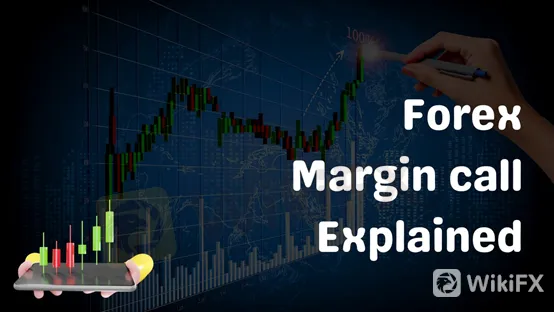| freeamfva | |
| freeamfvaのブログ | |
| 年代 | 30代後半 |
|---|---|
| 性別 | 女性 |
ブログライター
ブログ
| TITLE. How to stop margin calls from blowing up markets |
DATE. 2022年08月24日 15:37:33 |
THEME. 未分類 |
|
How to stop margin calls from blowing up markets Margin makes the financial system safer, but margin calls can be problematic. That’s the paradox regulators, traders and clearing houses are grappling with in the wake of the March 2020 panic and recent volatility in energy prices. The fix is to boost margin during good times, even if that makes trading costlier.To get more news about Margin Call, you can visit wikifx.com official website.
The structure of today’s global derivatives market dates back to 2009. The previous year, an opaque web of bilateral “over-the-counter” (OTC) contracts, such as credit default swaps, dragged systemically important lenders to the brink of collapse. Policymakers responded by forcing banks to clear more derivatives through central counterparties (CCPs). These bodies, typically owned by bourses like the London Stock Exchange, stand between buyer and seller and protect either party if the other blows up. The collateral underpinning most derivatives contracts has two components. The first is initial margin, or the baseline level that’s supposed to cover the risk of default. It’s typically a percentage of a trader’s exposure – usually between 3% and 12% for a futures contract, according to the CME Group. The second type is variation margin, which is usually paid daily to keep CCPs’ collateral buffers relatively stable as markets fluctuate. Both rise sharply during a panic: CCPs increase initial margin requirements as volatility rises, while variation margin is based on the daily profit or loss in a position. A trader with a losing bet is therefore required to keep handing over more cash as the market moves against them. This was a feature of markets before 2008. But the growing role of CCPs has two effects. First, they tend to ask for more collateral than banks did in the pre-crisis world. Second, when a CCP hikes its initial margin requirement this applies to everyone in the market, meaning cash calls are synchronised. For example, the overall initial margin posted at CCPs rose by $300 billion, or 40%, in the weeks up to mid-March 2020, according to a Bank for International Settlements (BIS) study. The figure for bilateral derivatives barely changed, based on figures cited by BoE Deputy Governor Jon Cunliffe. A similar dynamic played out when the Ukraine invasion sent energy prices soaring. The European Federation of Energy Traders (EFET) said in early March that the initial margin one large energy producer had to post with CCPs rose to 6 billion euros, from 1 billion euros last summer, even though its underlying position was unchanged. The same energy trader also faced daily variation margin payments of 500 million euros, compared with 50 million euros previously. It’s logical that CCPs ask for more collateral during a panic: that’s when defaults are most likely. The problem is that margin calls seem to have made things worse. In March 2020, for example, a so-called “dash for cash” saw investors liquidate even prime money-market funds and U.S. Treasury securities. The BoE’s Cunliffe reckons this was partly because investors needed cash to meet margin calls on derivatives. Meanwhile, surging energy and commodity prices this year forced energy traders who were short the market to post more collateral and take long positions to cover their losses. That drove prices higher, forcing yet more margin calls. The most extreme example was nickel trading on the London Metal Exchange which pushed broker-dealers to the brink of failure and forced the LME to cancel some trades. |
||
| TAG. Forex Day Trading | ||

















コメント
コメント:0件
コメントはまだありません